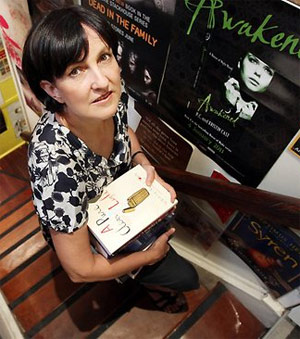 Independent bookshops: Holding the line
Independent bookshops: Holding the line
Some of the big boys may be in trouble, but independent bookshop owners are stubbornly hanging on, writes Andrew McMillen
“We’re all a little bit crazy. We’re all a little bit obsessive. We all work far too hard. We’re really passionate about what we do. We all do a huge amount of unpaid work in the community. We’re all literary award judges. We talk to schools. We’re passionate about literacy.”
Fiona Stager, co-founder of Avid Reader in Brisbane’s inner south, is describing the sort of people who own and operate independent bookstores across the country.
Suzy Wilson, owner of Riverbend Books in Bulimba, an inner-east suburb of the Queensland capital, wouldn’t argue with that assessment. There’s “a certain addiction to doing this”, she says. “I love it and believe in it. I believe in how important bookshops are in communities, to the extent that I’m not prepared to disappear.” With a laugh, she adds an afterthought, “Which my accountant thinks would be a really good idea.”
Entrance to Riverbend Books is gained by passing through the bustling Teahouse, Riverbend’s cafe. Monday morning business is brisk and walk-ins are hard-pressed to find empty seats. Inside, dozens browse the shelves; among them, young professionals and mothers with babes in arms. The sound of children laughing and playing echoes throughout the space. Handwritten staff recommendations hang from every other shelf. Overhead, a jazz soundtrack is played at just the right volume.
A former schoolteacher, Wilson knows “a lot about literacy and the ways of leading children towards books”, but had “less than zero” business knowledge when she decided to open the store in 1998. Based on what she gleaned from books on the subject — and what other medium would a prospective bookshop owner use to increase her knowledge? — it became clear that since her business would not be based in a shopping centre or an area with a high passing trade, Wilson needed “some other thing to make it a destination”.
Hence the Teahouse. Initially, a relaxation of Bulimba’s town planning laws allowed her to sell coffee, sushi and sandwiches, but not hot food. Since then, the overall store space has doubled and the Teahouse is now a restaurant in its own right, serving breakfast and lunch daily. Its earnings account for about 30 per cent of Riverbend’s overall business, but Wilson hopes the books and food split will return to 50-50, as it was in recent years. The two operations “complement each other really nicely”, she says.
Visiting authors have commented on the bookstore’s atmosphere. Children’s author James Maloney regards it as the “community church”, and another writer compared it with an English pub, referring to the store’s power as a social space. “I really like that role,” says Wilson, eloquent and generous in conversation, and with her praise of others.
Last year Wilson travelled to New York with Stager and two other bookshop owners, Mark Rubbo and Derek Dryden. Dryden is owner of Better Read Than Dead, in Sydney’s Newtown and Rubbo is general manager of independent chain Readings, which operates six shops across Melbourne. “He’s one of the few who’s significantly increased his online sales,” Wilson says, with unbridled admiration.
Rubbo makes the point that “people will always want to have some face-to-face contact and the pleasure of going into a bookshop, discovering things and talking to people. I think it will always be important. But that aspect of the business is losing market share to internet retailers.”
In New York Rubbo, Wilson, Stager and Dryden were the Australian contingent at Book Expo America, the largest annual US book trade fair. Calling it a place where “many interesting minds come together to talk and think about the book industry, and where it’s going”, Wilson found conversations there were the impetus for “facing the music”; for adding up the risks involved in continuing and the chances for survival.
Wilson nevertheless gives the impression she would rather not have to deal with questions about her business and its future, whether asked by her accountant, her customers or a journalist. The mere existence of pleasant, inviting bookshops such as her own should be punctuated with an exclamation point, not a question mark. After all, what else but passion could fuel the pursuit of an endeavour such as hers?
The business concerns of bookshops have been widely discussed of late, due largely to the mid-February announcement that REDgroup Retail — the company that oversees book chains Borders and Angus & Robertson — was entering voluntary administration. REDgroup chairman Steven Cain pointed his finger squarely at the federal government for its refusal to lift import restrictions or enforce GST on online shopping.
When this topic is raised, Wilson is unequivocal. “I regard it as grossly, grossly unfair that Amazon doesn’t have to collect GST. Canada make them do it, so why can’t we?” she asks. “I’ve written a few letters to politicians over the years. I’ve been bamboozled as to why no one wants to do anything about it.”
To Wilson, Amazon — the world’s biggest bookshop, whose storefront exists solely online — is “that horrible word we don’t like to use too often”. No wonder. Businesses such as Amazon and the Book Depository, an emerging online bookshop based in England that offers heavily discounted titles and free shipping to Australia, have altered the way customers buy books.
Wilson tells a story about book-club members who had been buying titles at the store for 10 years. Discovering the Book Depository had the same books for half the price, members “took me to task”, Wilson says. “I asked if they’d let me put up a spirited defence of my situation because they actually thought I was ripping them off.” She sighs. “That hurts. So I put up my defence, but they’d already ordered the books, so they went away a bit sheepish. I said, ‘If you buy from them, you’re saying that this place has no value in our community.’ I completely understand that you have to watch your dollars, but it’s a choice about where you watch them and what you value in your community. I think you have to look at the bigger picture and say: ‘Do I want a community without a local bookstore?’ ”
But this is all business talk. Wilson would much prefer to discuss Riverbend’s role as a community hub; how, for instance, seven local school principals use the Teahouse for their monthly breakfast meetings. Wilson regularly sits in with them. “They’re a really interesting group,” she says. In their most recent meeting, the topic of social media came up. It turned out that none of them — all “oldies”, according to Wilson, who lumps herself into that demographic — uses Facebook or Twitter. She realised last year all of her staff were “competent and involved” with such networks; at the time, she was blissfully ignorant yet aware of the necessity to keep her finger on the digital pulse. So, with the school principals as the first guinea pigs, Riverbend will soon begin hosting social media classes.
These are the kinds of gaps Wilson loves filling: an in-demand service, provided for a greater good. An example is the Indigenous Literacy Project, which Wilson founded in 2004: since the start of the project more than 60,000 books have been delivered to 200 remote communities across the country.
Wilson believes social projects at independent bookshops across the country are about “all of us putting our minds to building this community to be as strong as possible, so that we’ve got the best chance of surviving”, although she acknowledges they require a huge amount of work, which is “not really reflected in the returns”.
However, the pursuit of what Wilson dubs “the tipping point of profitability” will determine the years ahead. By hosting school principals for breakfast and helping indigenous children, perhaps these community-focused measures, in a roundabout way, will help Riverbend’s doors stay open.
Riverbend is not the first bookshop to realise the importance of leveraging its floor space beyond the basic act of stocking and selling books, and certainly won’t be the last. Stager sees the Avid Reader’s bulging events calendar as one of its key strengths. “We’ve put a greater emphasis on our events, which is what we’d started a couple of years ago. I’ve always been very event-driven; that was one of the core principles I started with, using Gleebooks in Sydney as a model.” Seeing as an example the growth of live music within an industry affected by declining physical sales, Stager decided to concentrate on what she deems “the live experience”; usually, visiting authors giving readings and conducting question-and-answer sessions with readers. Successes in the past 12 months include 400 payers attending a Shaun Micallef book launch at the Hi-Fi, a couple of blocks down from the bookshop on Boundary Street in West End, as well as more than 600 attending a Paul Kelly launch at the same venue.
David Gaunt has managed Gleebooks since 1978. “We’ve been around for a long time and I don’t think we’ve ever been unaware that the best chance for independent bookstores to survive is to place a strong emphasis on social engagement in the community,” he says. “In our case, this includes heavy representation at festivals and conferences, events outside the shop, as well as the country’s biggest in-store author event program.” Such events sustain customer interest year-round, he says, but especially when the going’s “really tough, which it certainly is at the moment”. For Gaunt, the act of bookselling, online or off, has barely changed during his time in the industry. This year, the only real difference is that Gleebooks promotes its events program through social media channels.
Enticing though such events are to so many, reading is still, by and large, a solitary pursuit. As to whether Stager views online bookstores as competition to the service in her shop, she responds cautiously. “Yes, they are. And that’s because everybody in the media has told the readers that Amazon and the Book Depository are our competition. I think they get millions of dollars of free advertising, which they don’t warrant.”
It’s perhaps an irony that so many Australians have gained knowledge of these alternative, online retailers through the act of reading the news, and the growing profitability of online sites is proof people do still read; more than ever, perhaps.
According to Stager she has “one big advantage over Amazon. If it’s on my shelf, you can buy it, there and then. I’ll gift wrap it for you, beautifully. I offer events and interaction with other readers through great customer service. There is more to retail than just getting something. Retail is an experience, and I have to make sure that when you come into my shop, you’re having an experience.”
Stager is adamant book consumers shouldn’t support independent retailers just because they’re smaller and thus perceived to be vulnerable. Instead, she says, “They have to support us because of what we offer: customer service, our range and a whole lot more. We have to be good citizens as well, so we have to be doing the right things by our staff, by our community.
“That all comes into play. Don’t support me just because I’m small and an indie; support me because of the things I do.”
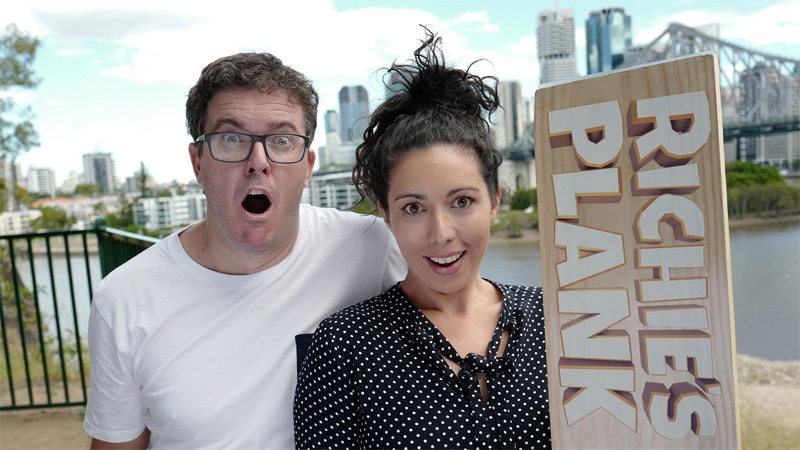
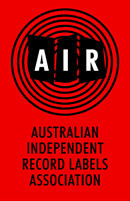

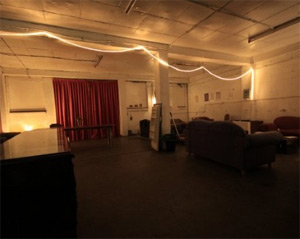 From the beginning, $10 got you inside – a cost which was maintained through until the final show in December 2010, except for the occasional special event – and since it was classed as a private residence, there was no liquor licensing regulations involved. You’d bring your own booze, and since the main area was adorned with couches, it didn’t feel dissimilar from your living room. Such was the charm of the Hangar: interesting people and new sounds, experienced in comfort. Upon entering, you’d be almost guaranteed to have a great – and cheap – night out.
From the beginning, $10 got you inside – a cost which was maintained through until the final show in December 2010, except for the occasional special event – and since it was classed as a private residence, there was no liquor licensing regulations involved. You’d bring your own booze, and since the main area was adorned with couches, it didn’t feel dissimilar from your living room. Such was the charm of the Hangar: interesting people and new sounds, experienced in comfort. Upon entering, you’d be almost guaranteed to have a great – and cheap – night out.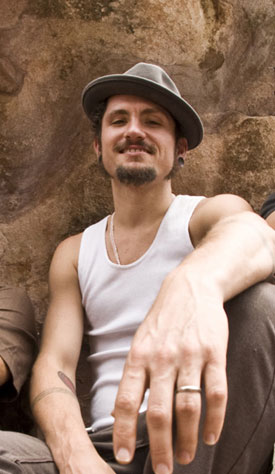 Interview – John Butler
Interview – John Butler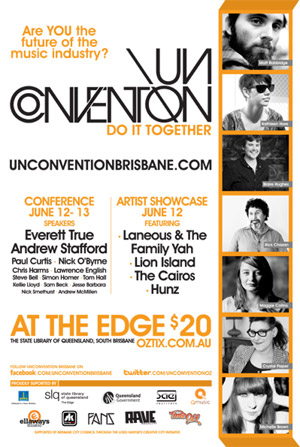 In whole, UnConvention Brisbane 2010 was a winner. I’m thrilled that 120 (or so) members of the city’s independent music scene were willing to spend their weekend – or at least, part of it – listening to and engaging with fellow venue operators, band managers, musicians, business owners and label representatives. For mine, this was the highlight: bringing people together, and putting them in a low pressure social space where they felt comfortable interacting with one another.
In whole, UnConvention Brisbane 2010 was a winner. I’m thrilled that 120 (or so) members of the city’s independent music scene were willing to spend their weekend – or at least, part of it – listening to and engaging with fellow venue operators, band managers, musicians, business owners and label representatives. For mine, this was the highlight: bringing people together, and putting them in a low pressure social space where they felt comfortable interacting with one another.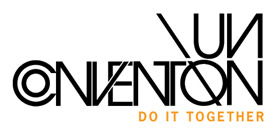 It’s a pleasure to be involved with an event that seeks to investigate how to sustain careers within Brisbane’s independent music industry. It’s important than ever to have these conversations. After spending a couple of years working in and around the local scene, I’m glad to be in a position to give something back.
It’s a pleasure to be involved with an event that seeks to investigate how to sustain careers within Brisbane’s independent music industry. It’s important than ever to have these conversations. After spending a couple of years working in and around the local scene, I’m glad to be in a position to give something back.